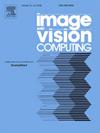Enhancing cross-domain generalization in retinal image segmentation via style randomization and style normalization
IF 4.2
3区 计算机科学
Q2 COMPUTER SCIENCE, ARTIFICIAL INTELLIGENCE
引用次数: 0
Abstract
Retinal image segmentation is a crucial procedure for automatically diagnosing ophthalmic diseases. However, existing deep learning-based segmentation models suffer from the domain shift issue, i.e., the segmentation accuracy decreases significantly when the test and training images are sampled from different distributions. To overcome this issue, we focus on the challenging single-source domain generalization scenario, where we expect to train a well-generalized segmentation model on unseen test domains with only access to one domain during training. In this paper, we present a style randomization method, which performs random scaling transformation to the LAB components of the training image, to enrich the style diversity. Furthermore, we present a style normalization method to effectively normalize style information while preserving content by channel-wise feature standardization and dynamic feature affine transformation. Our approach is evaluated on four types of retinal image segmentation tasks, including retinal vessel, optic cup, optic disc, and hard exudate. Experimental results demonstrate that our method achieves competitive or superior performance compared to state-of-the-art approaches. Specifically, it outperforms the second-best method by 3.9%, 2.6%, and 4.8% on vessel, optic cup, and hard exudate segmentation tasks, respectively. Our code will be released at https://github.com/guomugong/SRN.
通过样式随机化和样式归一化增强视网膜图像分割的跨域泛化
视网膜图像分割是眼科疾病自动诊断的关键步骤。然而,现有的基于深度学习的分割模型存在域移位问题,即当测试图像和训练图像来自不同的分布时,分割精度会显著降低。为了克服这个问题,我们专注于具有挑战性的单源域泛化场景,我们期望在训练期间只能访问一个域的未见测试域上训练一个良好的泛化分割模型。本文提出了一种风格随机化方法,对训练图像的LAB成分进行随机缩放变换,以丰富风格多样性。在此基础上,提出了一种样式归一化方法,通过通道特征标准化和动态特征仿射变换对样式信息进行有效归一化,同时保留内容。我们的方法在四种类型的视网膜图像分割任务中进行了评估,包括视网膜血管、视杯、视盘和硬渗出。实验结果表明,与最先进的方法相比,我们的方法具有竞争力或更好的性能。具体来说,它在血管、光学杯和硬渗出物分割任务上的表现分别比第二好的方法高出3.9%、2.6%和4.8%。我们的代码将在https://github.com/guomugong/SRN上发布。
本文章由计算机程序翻译,如有差异,请以英文原文为准。
求助全文
约1分钟内获得全文
求助全文
来源期刊

Image and Vision Computing
工程技术-工程:电子与电气
CiteScore
8.50
自引率
8.50%
发文量
143
审稿时长
7.8 months
期刊介绍:
Image and Vision Computing has as a primary aim the provision of an effective medium of interchange for the results of high quality theoretical and applied research fundamental to all aspects of image interpretation and computer vision. The journal publishes work that proposes new image interpretation and computer vision methodology or addresses the application of such methods to real world scenes. It seeks to strengthen a deeper understanding in the discipline by encouraging the quantitative comparison and performance evaluation of the proposed methodology. The coverage includes: image interpretation, scene modelling, object recognition and tracking, shape analysis, monitoring and surveillance, active vision and robotic systems, SLAM, biologically-inspired computer vision, motion analysis, stereo vision, document image understanding, character and handwritten text recognition, face and gesture recognition, biometrics, vision-based human-computer interaction, human activity and behavior understanding, data fusion from multiple sensor inputs, image databases.
 求助内容:
求助内容: 应助结果提醒方式:
应助结果提醒方式:


